|
COVID-19 Emergency Response Information
Stay Safer at Home. Stay Healthy.
COVID-19 Emergency Response Information at
AUCD's National Center on Disability in Public Health
AUCD News & Events
John Tschida Begins Role as AUCD's New Executive Director
 The Board of Directors and the Search Committee are pleased to announce, following a competitive national search, John Tschida is the Association’s next Executive Director. John has served as AUCD's Interim Director for the previous nine months. During his tenure, he led the organization through a series of important accomplishments. John Tschida, MPP, has spent more than 20 years using data and research to drive policy change and service development for individuals with disabilities. John assumes the position, effective September 1st. AUCD is eager to begin the next chapter of growth and impact for the organization. Continue Reading about John Tschida’s new role as Executive Director! The Board of Directors and the Search Committee are pleased to announce, following a competitive national search, John Tschida is the Association’s next Executive Director. John has served as AUCD's Interim Director for the previous nine months. During his tenure, he led the organization through a series of important accomplishments. John Tschida, MPP, has spent more than 20 years using data and research to drive policy change and service development for individuals with disabilities. John assumes the position, effective September 1st. AUCD is eager to begin the next chapter of growth and impact for the organization. Continue Reading about John Tschida’s new role as Executive Director!
New Technical Assistance and Training Center on Disability Inclusion in Emergency Preparedness
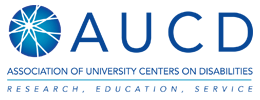 The COVID-19 outbreak impacts all communities across the U.S. - including the 1 in 4 Americans who has a disability. In response, AUCD is launching a new National Technical Assistance and Training Center on Disability Inclusion in Emergency Preparedness. The goal of the Training Center will be to support the disability community to develop local government relationships, build awareness and trust, and gain a seat at the local emergency planning table, fostering emergency planning for all. A "Prepared 4All" initiative will be offered by this new Training Center to mobilize disability organizations and their networks to foster connections with emergency response professionals, public health professionals, and health care providers in order to provide technical assistance, training, and support regarding the inclusion of people with disabilities in emergency response efforts. This initiative aims to increase the number of individuals with disabilities and disability organizations that are actively engaged in local emergency planning efforts by harnessing the unique strengths of this population and these organizations. “Prepared4All” links disability organizations and individuals with emergency management agencies, public health professionals, and health provider organizations on a local level. Inclusion coaches from the disability community will form "Action Teams” that will collaborate with local emergency management, public health, and health providers to offer a menu of services to support disability inclusion. Welcome to the new staff who are supporting this effort: Sue Wolf-Fordham, JD, MPA; Lex Owen, MSW, PhD; and Danielle Augustin, MS, CHWC. To learn more or to join the “Prepared4All” initiative, please email [email protected]. The COVID-19 outbreak impacts all communities across the U.S. - including the 1 in 4 Americans who has a disability. In response, AUCD is launching a new National Technical Assistance and Training Center on Disability Inclusion in Emergency Preparedness. The goal of the Training Center will be to support the disability community to develop local government relationships, build awareness and trust, and gain a seat at the local emergency planning table, fostering emergency planning for all. A "Prepared 4All" initiative will be offered by this new Training Center to mobilize disability organizations and their networks to foster connections with emergency response professionals, public health professionals, and health care providers in order to provide technical assistance, training, and support regarding the inclusion of people with disabilities in emergency response efforts. This initiative aims to increase the number of individuals with disabilities and disability organizations that are actively engaged in local emergency planning efforts by harnessing the unique strengths of this population and these organizations. “Prepared4All” links disability organizations and individuals with emergency management agencies, public health professionals, and health provider organizations on a local level. Inclusion coaches from the disability community will form "Action Teams” that will collaborate with local emergency management, public health, and health providers to offer a menu of services to support disability inclusion. Welcome to the new staff who are supporting this effort: Sue Wolf-Fordham, JD, MPA; Lex Owen, MSW, PhD; and Danielle Augustin, MS, CHWC. To learn more or to join the “Prepared4All” initiative, please email [email protected].
New State and Territorial Act Early COVID-19 Response Teams
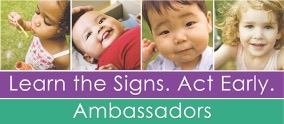
43 State and Territorial Act Early/COVID-19 Response Teams have recently been awarded a one-year grant opportunity for Support for Early Childhood State Systems through the Act Early Network. This nationwide initiative is focused on support for early childhood state systems through the Act Early Network to support recovery and strengthen resilience skills, behaviors, and resources of children, families, and communities. This support opportunity is expected to bolster and evaluate the integration of parent-engaged developmental monitoring using "Learn the Signs. Act Early." (LTSAE) in at least one high-reach statewide program serving families with young children (birth to age 5), as well as advance the promotion and distribution of relevant, existing tools, materials, and programs to improve resiliency among families with young children during COVID-19 response and mitigation efforts.
AUCD Welcomes 7 New Learn the Signs. Act Early Ambassadors
 AUCD is proud to announce seven new Learn the Signs. Act Early. Ambassadors: Angela Scott (Arkansas), Elaine Eclavea (Guam), Lori Orr (Illinois), Synthia Britton (Michigan), Sharon Loza (North Carolina), Claire Niday (Texas), and Jackie Newson (West Virginia)! AUCD is proud to announce seven new Learn the Signs. Act Early. Ambassadors: Angela Scott (Arkansas), Elaine Eclavea (Guam), Lori Orr (Illinois), Synthia Britton (Michigan), Sharon Loza (North Carolina), Claire Niday (Texas), and Jackie Newson (West Virginia)!
Angela Scott is an Assistant Professor at the Department of Pediatrics at the University of Arkansas for Medical Sciences. Elaine Eclavea is the Chairperson of Guam’s Early Learning Council (GELC). Lori Orr is the Director of Professional Development at the Governor’s Office of Early Childhood Development. Synthia Britton is the Early Childhood Public Health Consultant at the Michigan Department of Health and Human Services. Sharon Loza is the Branch Head/Part C coordinator at the North Carolina Early Intervention Infant-Toddler Program. Claire Niday is the State Child Health Coordinator at the Texas Department of State Health Services. Jackie Newson is the Program Director at the West Virginia Office of Maternal, Child and Family Health.
Learn more about the Learn the Signs. Act Early. Program at CDC!
AUCD Expands Children's Mental Health Champions!
 The Children’s Mental Health Champions, made possible through a cooperative agreement with the Centers for Disease Control and Prevention (CDC), has expanded to support champions in American Samoa, California, Colorado, Connecticut, Kentucky, Georgia, New Mexico, Maine, North Carolina, South Dakota, and Virginia. We now have a total of 12 Champions supporting efforts in states and territories across the nation! Champions act as community change agents to increase positive parenting practices, through a one-year term of service. Champions will develop state-specific work plans to implement effective strategies for mental health promotion, prevention supports, and the creation of networks (e.g., school, healthcare, and community) to promote better connections between these systems. Learn more about the Children’s Mental Health Champions! The Children’s Mental Health Champions, made possible through a cooperative agreement with the Centers for Disease Control and Prevention (CDC), has expanded to support champions in American Samoa, California, Colorado, Connecticut, Kentucky, Georgia, New Mexico, Maine, North Carolina, South Dakota, and Virginia. We now have a total of 12 Champions supporting efforts in states and territories across the nation! Champions act as community change agents to increase positive parenting practices, through a one-year term of service. Champions will develop state-specific work plans to implement effective strategies for mental health promotion, prevention supports, and the creation of networks (e.g., school, healthcare, and community) to promote better connections between these systems. Learn more about the Children’s Mental Health Champions!
AUCD Submits Comments to the National Academy of Medicine Vaccine Allocation Framework
AUCD submitted comments to the National Academy of Medicine regarding its draft Framework for the Ethical Allocation of COVID-19 Vaccines. AUCD urged the National Academies to include individuals with disabilities and the care professionals who serve them in the first phase allocation of the COVID-19 vaccine. It is both an ethical imperative to support this vulnerable population and a practical measure to mitigate the spread of the novel coronavirus.
Public Health is for Everyone Toolkit Updates: COVID-19 Resources!
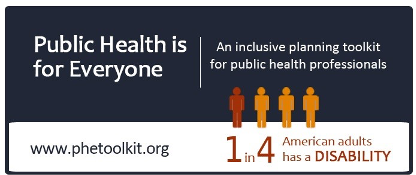 The Public Health is for Everyone Toolkit is a one-stop collection of resources on health and disability. The online toolkit serves to enhance plannng efforts and to increase the capacity of public health professionals to create programs that benefit entire communities, including people who have disabilities. The Public Health is for Everyone Toolkit provides resources in key issue areas such as emergency preparedness, nutrition, obesity, health care access, accessibility, and more. The Public Health is for Everyone Toolkit is a one-stop collection of resources on health and disability. The online toolkit serves to enhance plannng efforts and to increase the capacity of public health professionals to create programs that benefit entire communities, including people who have disabilities. The Public Health is for Everyone Toolkit provides resources in key issue areas such as emergency preparedness, nutrition, obesity, health care access, accessibility, and more.
Visit the COVID-19 issue area of the PHEtoolkit.org to see all the newly added resources for current information and strategies for support and coping with social distanicing! You can also submit resources to be included in the toolkit here!
Social Media Update! Follow @AUCDNews and #PHis4Everyone
 AUCD is consolidating its social media presence to Hear from experts on steps to better serve and interact with followers. Effective April 2020, AUCD's National Center on Disability in Public Health, @Phis4Everyone twitter handle will no longer be active. Instead, you will now receive the same great public health news from @AUCDNews with the hashtag, #PHis4Everyone. Follow @AUCDNews on twitter and the new hashtag, #PHis4Everyone, to keep up to date on public health news from AUCD! AUCD is consolidating its social media presence to Hear from experts on steps to better serve and interact with followers. Effective April 2020, AUCD's National Center on Disability in Public Health, @Phis4Everyone twitter handle will no longer be active. Instead, you will now receive the same great public health news from @AUCDNews with the hashtag, #PHis4Everyone. Follow @AUCDNews on twitter and the new hashtag, #PHis4Everyone, to keep up to date on public health news from AUCD!
Save the Date for the #OwnMyHealthRecord Twitter Chat
Thursday, October 15, 2020, 3:00 p.m. ET
Mark your calendar and make plans to join a lively discussion on what a health record is, how it is used, and why it is important. The hashtag will be: #OwnMyHealthRecord. Join the discussion on how a health record supports patient rights and access to things needed now, such as a flu shot. Please bring links to your favorite resources and be ready to share during the chat on October 15th at 3:00 p.m. ET.
Access to Healthcare
COVID-19: People with Disabilities and Underlying Conditions Delaying or Avoiding Medical Care
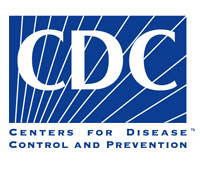 As of June 30, 2020, an estimated 41% of 4,975 U.S. adults reported having delayed or avoided medical care because of concerns about coronavirus disease 2019 (COVID-19), including 12% who report having avoided urgent or emergency care. Urgent or emergency care avoidance was more common among unpaid caregivers for adults, people with two or more underlying medical conditions, Black adults, Hispanic adults, young adults, and people with disabilities. As of June 30, 2020, an estimated 41% of 4,975 U.S. adults reported having delayed or avoided medical care because of concerns about coronavirus disease 2019 (COVID-19), including 12% who report having avoided urgent or emergency care. Urgent or emergency care avoidance was more common among unpaid caregivers for adults, people with two or more underlying medical conditions, Black adults, Hispanic adults, young adults, and people with disabilities.
Avoidance of emergency and urgent medical care may be harmful, and in some cases, life-threatening. Sustained avoidance of routine care may lead to missed opportunities for management of chronic conditions, receipt of routine vaccinations, or early detection of new conditions, which might worsen outcomes. Avoiding medical care can be especially problematic for people with underlying medical conditions. Continue reading here!
New Funding Opportunity for Remotely Delivered Complementary and Integrative Health Interventions
 Health care and health interventions are increasingly shifting to remote forms of delivery. The National Center for Complementary and Integrative Health (NCCIH) recently published PAR-20-154to support Investigator Initiated Trials of Complementary and Integrative Interventions Delivered Remotely or via mHealth (R01 Clinical Trial Required). Learn more about Remotely delivered and mobile health (mHealth) interventions and the unique features of this funding opportunity. Health care and health interventions are increasingly shifting to remote forms of delivery. The National Center for Complementary and Integrative Health (NCCIH) recently published PAR-20-154to support Investigator Initiated Trials of Complementary and Integrative Interventions Delivered Remotely or via mHealth (R01 Clinical Trial Required). Learn more about Remotely delivered and mobile health (mHealth) interventions and the unique features of this funding opportunity.
Key Facts About Seasonal Flu Vaccine
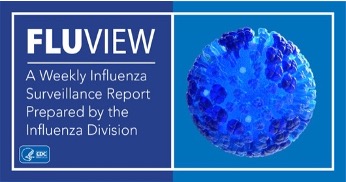 Because of the COVID-19 Pandemic, reducing the spread of respiratory illnesses, like flu, this fall and winter is more important than ever. CDC has worked with vaccine manufacturers to have extra flu vaccine available this flu season. Manufacturers have already begun distributing flu vaccine and will continue to distribute vaccine throughout the season. CDC recommends getting a flu vaccination in September or October but getting vaccinated anytime during the flu season can help protect you. Use the VaccineFinder to find out where to get vaccinated near you. Because of the COVID-19 Pandemic, reducing the spread of respiratory illnesses, like flu, this fall and winter is more important than ever. CDC has worked with vaccine manufacturers to have extra flu vaccine available this flu season. Manufacturers have already begun distributing flu vaccine and will continue to distribute vaccine throughout the season. CDC recommends getting a flu vaccination in September or October but getting vaccinated anytime during the flu season can help protect you. Use the VaccineFinder to find out where to get vaccinated near you.
Healthy People 2030 is Here!
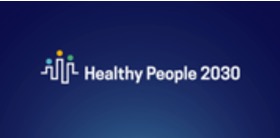 Healthy People 2030— the fifth iteration of the Healthy People initiative — has launched. Building on knowledge gained over the past four decades, Healthy People 2030 sets national objectives to address the nation’s latest public health priorities. Healthy People 2030— the fifth iteration of the Healthy People initiative — has launched. Building on knowledge gained over the past four decades, Healthy People 2030 sets national objectives to address the nation’s latest public health priorities.
Visit the site and learn more about what's new in Healthy People 2030.
Responsive Practice Trainings
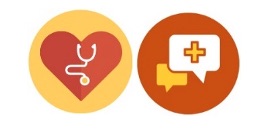 A Responsive Practice enhances health care providers’ ability to deliver disability-competent care that is accessible to people with intellectual, mobility, and other disabilities. The New Hampshire Disability & Public Health project offers two trainings, “Providing Health Care and Screenings to Individuals with Disabilities” and “Accessible & Adaptive Communication.” Register today to learn strategies and approaches to identify, address, and help remove barriers to care. The Responsive Practice trainings are online, on-demand, and free for a limited time. A Responsive Practice enhances health care providers’ ability to deliver disability-competent care that is accessible to people with intellectual, mobility, and other disabilities. The New Hampshire Disability & Public Health project offers two trainings, “Providing Health Care and Screenings to Individuals with Disabilities” and “Accessible & Adaptive Communication.” Register today to learn strategies and approaches to identify, address, and help remove barriers to care. The Responsive Practice trainings are online, on-demand, and free for a limited time.
Developmental Monitoring
Rose F. Kennedy Children’s Evaluation and Rehabilitation Center: COVID-19 Resource Guide
 The Rose F. Kennedy Children’s Evaluation and Rehabilitation Center (RFK CERC) is an interdisciplinary service program for children and adults with intellectual and developmental disabilities. RFK CERC has created a list of resources related to the ongoing concern of COVID-19. Each resource is listed by its target audience: Children/Youth, General COVID, Individuals with Disabilities, Older Adults, and Plain Language. Plain language is for all reading levels. View the RFK CERC website and learn more about its COVID-19 resources. The Rose F. Kennedy Children’s Evaluation and Rehabilitation Center (RFK CERC) is an interdisciplinary service program for children and adults with intellectual and developmental disabilities. RFK CERC has created a list of resources related to the ongoing concern of COVID-19. Each resource is listed by its target audience: Children/Youth, General COVID, Individuals with Disabilities, Older Adults, and Plain Language. Plain language is for all reading levels. View the RFK CERC website and learn more about its COVID-19 resources.
How Can I Help My Child, Who Has a Developmental Disability, Cope During COVID-19?
 Being a parent or caregiver of a child with a developmental disability may have its challenges, but even more so during the Pandemic. You may be trying to figure out how to adapt to the “new normal" for your child, your family, and yourself. Check out these tips and advice from Jennifer Poon, MD, FAAP, a Developmental-Behavioral Pediatrician and an Associate Professor of Pediatrics at the Medical University of South Carolina in Charleston. Being a parent or caregiver of a child with a developmental disability may have its challenges, but even more so during the Pandemic. You may be trying to figure out how to adapt to the “new normal" for your child, your family, and yourself. Check out these tips and advice from Jennifer Poon, MD, FAAP, a Developmental-Behavioral Pediatrician and an Associate Professor of Pediatrics at the Medical University of South Carolina in Charleston.
Guidance on the Necessary Use of Telehealth During the COVID-19 Pandemic
 The American Academy of Pediatrics (AAP) strongly supports continued access to health care for children and adolescents during the coronavirus disease 2019 (COVID-19) pandemic, whether it be in person or via telehealth. Among the many dramatic changes seen in clinical pediatric practice during this public health emergency has been the rapid adoption of telehealth. Many patients and families have found telehealth to be a valuable means to access their medical home, pediatric medical subspecialists, or pediatric surgical specialists, particularly those who live in rural and underserved communities. Continue reading about clinical guidance for telehealth and necessary use during the COVID-19 Pandemic. The American Academy of Pediatrics (AAP) strongly supports continued access to health care for children and adolescents during the coronavirus disease 2019 (COVID-19) pandemic, whether it be in person or via telehealth. Among the many dramatic changes seen in clinical pediatric practice during this public health emergency has been the rapid adoption of telehealth. Many patients and families have found telehealth to be a valuable means to access their medical home, pediatric medical subspecialists, or pediatric surgical specialists, particularly those who live in rural and underserved communities. Continue reading about clinical guidance for telehealth and necessary use during the COVID-19 Pandemic.
Emergency Preparedness
Considerations for Wearing Masks
 Masks are recommended as a simple barrier to help prevent respiratory droplets from traveling into the air and onto other people when the person wearing the mask coughs, sneezes, talks, or raises their voice. This is called source control. CDC's recommendation on masks is based on what is knownn about the role respiratory droplets play in the spread of the virus that causes COVID-19. There is also emerging evidence from clinical and laboratory studies that shows masks reduce the spray of droplets when worn over the nose and mouth. CDC’s recommendations for masks will be updated as new scientific evidence becomes available. Masks are recommended as a simple barrier to help prevent respiratory droplets from traveling into the air and onto other people when the person wearing the mask coughs, sneezes, talks, or raises their voice. This is called source control. CDC's recommendation on masks is based on what is knownn about the role respiratory droplets play in the spread of the virus that causes COVID-19. There is also emerging evidence from clinical and laboratory studies that shows masks reduce the spray of droplets when worn over the nose and mouth. CDC’s recommendations for masks will be updated as new scientific evidence becomes available.
COVID-19 and Disabilities: Inclusive Disaster Planning Is Crucial for Vulnerable Populations
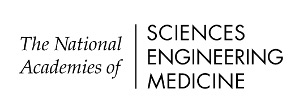 “States get a significant amount of federal funding for disaster preparedness and recovery, and those federal funds should be making their way to disability-inclusive planning. If not, we have missed the opportunity to be ready for whatever the next emergency or disaster may be.” Check out the full article to read more about inclusive disaster planning and watch the Best Practices for Patient-Clinician Communication for People with Disabilities in the Era of COVID-19: A Webinar. “States get a significant amount of federal funding for disaster preparedness and recovery, and those federal funds should be making their way to disability-inclusive planning. If not, we have missed the opportunity to be ready for whatever the next emergency or disaster may be.” Check out the full article to read more about inclusive disaster planning and watch the Best Practices for Patient-Clinician Communication for People with Disabilities in the Era of COVID-19: A Webinar.
September is National Preparedness Month!
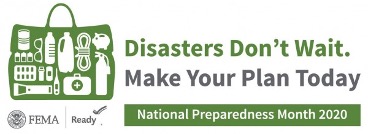 September, National Preparedness Month is an opportunity for local health departments (LHDs) and Medical Reserve Corps (MRC) units to raise awareness about the importance of community disaster planning. The National Association of County and City Health Officials (NACCHO) encourages LHDs and MRC units to take advantage of Preparedness Month to engage families, communities, businesses, and other regional partners in preparedness activities. Learn more about this year’s weekly focus points! September, National Preparedness Month is an opportunity for local health departments (LHDs) and Medical Reserve Corps (MRC) units to raise awareness about the importance of community disaster planning. The National Association of County and City Health Officials (NACCHO) encourages LHDs and MRC units to take advantage of Preparedness Month to engage families, communities, businesses, and other regional partners in preparedness activities. Learn more about this year’s weekly focus points!
#MaskUp Campaign!
 The Association of State and Territorial Officials (ASTHO) and the Big Cities Health Coalition produced a public service announcement to encourage people across the country to express their compassion for others and #MaskUp. Please download, share, and encourage others to do their part to protect the community from the Pandemic. Watch the #MaskUp PSA to learn more about the campaign and how to prevent the spread of COVID-19. The Association of State and Territorial Officials (ASTHO) and the Big Cities Health Coalition produced a public service announcement to encourage people across the country to express their compassion for others and #MaskUp. Please download, share, and encourage others to do their part to protect the community from the Pandemic. Watch the #MaskUp PSA to learn more about the campaign and how to prevent the spread of COVID-19.
Nutrition and Healthy Weight
Wellness Challenge Coloring Book
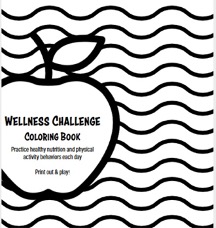 No matter how you play, move, or color, are you up for the challenge? The National Center on Health, Physical Activity and Disabilty's (NCHPAD's) Wellness Challenge Coloring Book is an inclusive activity booklet that encourages youth to make healthy choices throughout the day and color in their accomplishments! This coloring book is full of inclusive exercise and nutrition challenges. Either print and play or complete the activities by viewing online. No matter how you play, move, or color, are you up for the challenge? The National Center on Health, Physical Activity and Disabilty's (NCHPAD's) Wellness Challenge Coloring Book is an inclusive activity booklet that encourages youth to make healthy choices throughout the day and color in their accomplishments! This coloring book is full of inclusive exercise and nutrition challenges. Either print and play or complete the activities by viewing online.
Food Resources Needed for NH Residents with Disabilities
 In New Hampshire, people with disabilities and their families are four times more likely to report food insecurity than people without disabilities. Food insecurity results from not being able to afford enough food to live an active, healthy life. Review the data and learn about resources to improve food security. In New Hampshire, people with disabilities and their families are four times more likely to report food insecurity than people without disabilities. Food insecurity results from not being able to afford enough food to live an active, healthy life. Review the data and learn about resources to improve food security.
Safe Return to Sport & Recreation
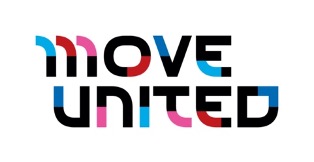 Even before the coronavirus pandemic, people with disabilities faced more barriers to access sport and recreation than the general population. Now, as states start to re-open, the gap to access opportunities may grow even wider. People with disabilities are taking a more conservative approach on when and how to “return to play” because of health concerns. Learn more about the return to in-person programs while protecting the health and wellness of our community. Even before the coronavirus pandemic, people with disabilities faced more barriers to access sport and recreation than the general population. Now, as states start to re-open, the gap to access opportunities may grow even wider. People with disabilities are taking a more conservative approach on when and how to “return to play” because of health concerns. Learn more about the return to in-person programs while protecting the health and wellness of our community.
Beyond School Walls: How Federal, State and Local Entities are Adapting Policies to Ensure Student Access to Healthy Meals During the COVID-19 Pandemic
 “Over half of all students in elementary and secondary schools across the country depend on the National School Lunch Program for a healthy mid-day meal, and 12.5 million students participate in the School Breakfast Program. As the COVID-19 Pandemic closed schools during the spring of 2020, these students were at risk of not having enough to eat. Waivers allowing program flexibility helped ensure students didn't go hungry and should stay in place until the Pandemic is fully controlled.” Continue reading about initiatives to support school nutrition during the COVID-19 Pandemic. “Over half of all students in elementary and secondary schools across the country depend on the National School Lunch Program for a healthy mid-day meal, and 12.5 million students participate in the School Breakfast Program. As the COVID-19 Pandemic closed schools during the spring of 2020, these students were at risk of not having enough to eat. Waivers allowing program flexibility helped ensure students didn't go hungry and should stay in place until the Pandemic is fully controlled.” Continue reading about initiatives to support school nutrition during the COVID-19 Pandemic.
Are you in Need of Fitness Inspiration & Gear?
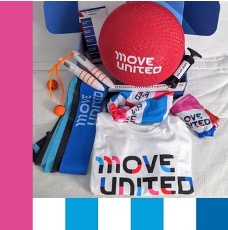 Move United is providing free #AdaptAtHome Fitness Kits to help keep individuals with disabilities active at home! It is important to stay physically active for a healthy mind and body. The reality is, not everyone has access to a gym, and the COVID-19 Pandemic has compounded those challenges. Read the instructional resources and fitness challenges to refresh your home workouts. Move United is providing free #AdaptAtHome Fitness Kits to help keep individuals with disabilities active at home! It is important to stay physically active for a healthy mind and body. The reality is, not everyone has access to a gym, and the COVID-19 Pandemic has compounded those challenges. Read the instructional resources and fitness challenges to refresh your home workouts.
Sexual and Reproductive Health
Make a Positive Impact by Supporting Sexual Health
 World Sexual Health Day was established in 2010 and is recognized every year on September 4th. This day is devoted to raising awareness about sexual health and promoting best practices in sexuality and sexual relationships. World Sexual Health Day was established in 2010 and is recognized every year on September 4th. This day is devoted to raising awareness about sexual health and promoting best practices in sexuality and sexual relationships.
Through The Council on Quality and Leadership's (CQL) Personal Outcome Measures® data, we find that only 58.7% of organizations know and understand people’s preferences for intimate relationships. If organizations are not aware of how people wish to experience intimate relationships and sexuality, it is impossible to provide individualized support in this area.
Read CQL's research, articles, and tools to help you better understand these issues, and implement supports that can make a positive impact on people's lives by promoting sexual health.
Summer AND a Pandemic: 5 Tips to Support Parents Who Are Spending More Time at Home with Their Young or Grown Kids
 There is a myriad of new life situations we are all getting used to in this uncertain time. Parents working from home, day or support programs closed or online, everyone under the same roof. More time together often equals more questions. Less outside support means more on parents to deal with every day. It can be overwhelming, especially when the topic of sexuality or sexual behavior comes up. Check out these resources for helping parents talk with their young or grown children about sexuality. There is a myriad of new life situations we are all getting used to in this uncertain time. Parents working from home, day or support programs closed or online, everyone under the same roof. More time together often equals more questions. Less outside support means more on parents to deal with every day. It can be overwhelming, especially when the topic of sexuality or sexual behavior comes up. Check out these resources for helping parents talk with their young or grown children about sexuality.
Sexual and Gender Minorities with Autism Spectrum Disorder May Face Challenges to Getting Needed Healthcare
Autism spectrum disorder (ASD) is a developmental disability that affects how people communicate and process information. Recent studies have shown that a significant number of adults with ASD identify as being lesbian, gay, bisexual, transgender, or queer (LGBTQ+). Research has also shown that both adults with ASD and adults who are LGBTQ+ may have trouble accessing needed healthcare services, and people with both identities may have particular difficulty developing good working relationships with doctors. In a recent NIDILRR-funded study, researchers looked at the healthcare experiences of adults with ASD who identified as LGBTQ+. Continue Reading…
Wellness and Mental Health
New Morbidity and Mortality Weekly Report (MMWR): Frequent Mental Distress Among Adults, by Disability Status, Disability Type, and Selected Characteristics - United States, 2018
 New data analyses from CDC show that nationwide, an estimated 17.4 million adults with disabilities experience frequent mental distress 4.6 times as often than do adults without disabilities. Adults living below the federal poverty level report mental distress 70% more often than do adults in higher-income households. Targeted interventions and programs and policies that ensure receipt of mental health screening, care, and support services could help reduce mental distress among adults with disabilities. Continue Reading the Report. New data analyses from CDC show that nationwide, an estimated 17.4 million adults with disabilities experience frequent mental distress 4.6 times as often than do adults without disabilities. Adults living below the federal poverty level report mental distress 70% more often than do adults in higher-income households. Targeted interventions and programs and policies that ensure receipt of mental health screening, care, and support services could help reduce mental distress among adults with disabilities. Continue Reading the Report.
Mindful: A Meditation Series
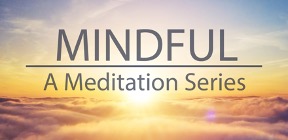 "Mindful: A Meditation Series" is a comprehensive playlist for learning the basics of mindfulness and exploring inclusive guided meditations. Make mindfulness and meditation a part of your daily life! Check out this meditation series created by the National Center on Health, Physical Activity and Disability (NCHPAD). "Mindful: A Meditation Series" is a comprehensive playlist for learning the basics of mindfulness and exploring inclusive guided meditations. Make mindfulness and meditation a part of your daily life! Check out this meditation series created by the National Center on Health, Physical Activity and Disability (NCHPAD).
September is National Suicide Prevention Awareness Month
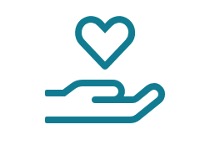 September is National Suicide Prevention Awareness Month. CDC has created a new webpage for coping with stress in the difficult times resulting from the COVID-19 Pandemic. Recently, CDC has announced both a new Suicide Prevention Strategic Plan and the agency's first programmatic funding to prevent suicide. The Nation Center for Injury Prevention and Control is directing $35 million in total over five years to the CDC-RFA-CE20-2001 cooperative agreement to implement and evaluate a comprehensive public health approach to suicide prevention, with attention to populations at higher risk. September is National Suicide Prevention Awareness Month. CDC has created a new webpage for coping with stress in the difficult times resulting from the COVID-19 Pandemic. Recently, CDC has announced both a new Suicide Prevention Strategic Plan and the agency's first programmatic funding to prevent suicide. The Nation Center for Injury Prevention and Control is directing $35 million in total over five years to the CDC-RFA-CE20-2001 cooperative agreement to implement and evaluate a comprehensive public health approach to suicide prevention, with attention to populations at higher risk.
Other Resources
Did you Know? 93 million U.S. Adults are at High Risk for Vision Loss
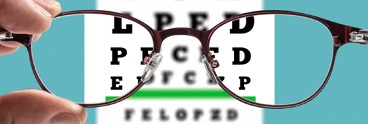 More than 93 million American adults are at high risk for vision loss, and 40% of them did not receive an eye exam in the past year, according to a recent CDC study. Vision problems can be worsened by chronic conditions, such as diabetes, but vision health is rarely incorporated into chronic disease prevention and management programs. Public health agencies and their partners can guide their vision loss prevention programs with CDC’s Vision Health Initiative resources that include a new vision and eye health toolkit. More than 93 million American adults are at high risk for vision loss, and 40% of them did not receive an eye exam in the past year, according to a recent CDC study. Vision problems can be worsened by chronic conditions, such as diabetes, but vision health is rarely incorporated into chronic disease prevention and management programs. Public health agencies and their partners can guide their vision loss prevention programs with CDC’s Vision Health Initiative resources that include a new vision and eye health toolkit.
Einstein/Montefiore Children and Youth with Special Health Care Needs (CYSHCN) Project – Family Engagement Sessions in NYC and Long Island
Einstein/Montefiore wants to talk to parents and guardians of children and youth (0 to 21 years old) with special health care needs (CYSHCN). You can represent yourself if you are between 18 and 21 years old. You must live in New York City or Long Island.
Discussions will be held through phone calls and video chat. You can earn up to $75 in gift-cards for participating from the safety of your own home. To participate, fill out the Einstein/Montefiore Children and Youth with Special Health Care Needs (CYSHCN) Project Survey now!
Do you Provide Personal Assistance Services to Rural People with Disabilities? We Want to Hear your Story!
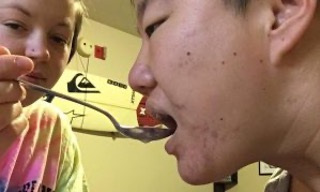
The Research and Training Center on Disability in Rural Communities is partnering with the University of California, San Francisco (UCSF) Health Workforce Research Center on Long-Term Care to identify the supports needed for personal assistance services (PAS) workers (also known as personal care attendants, or PCAs) in underserved rural communities. To help better understand PAS worker experiences, the Rural Personal Assistance Worker Project Team is recruiting PAS workers in Alaska, Arizona, and Montana to take pictures of their daily work experiences. Share your story today and learn more about improving our understanding of how to support the important work of PAS.
|
